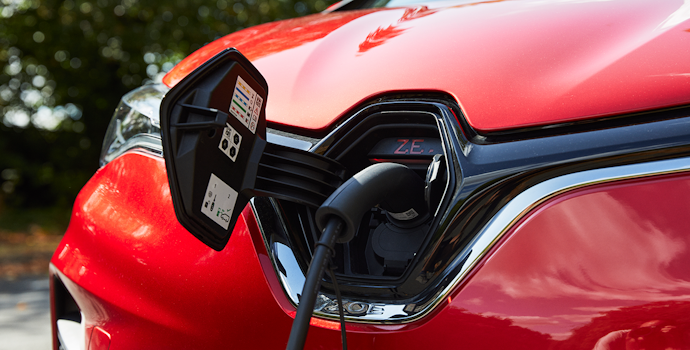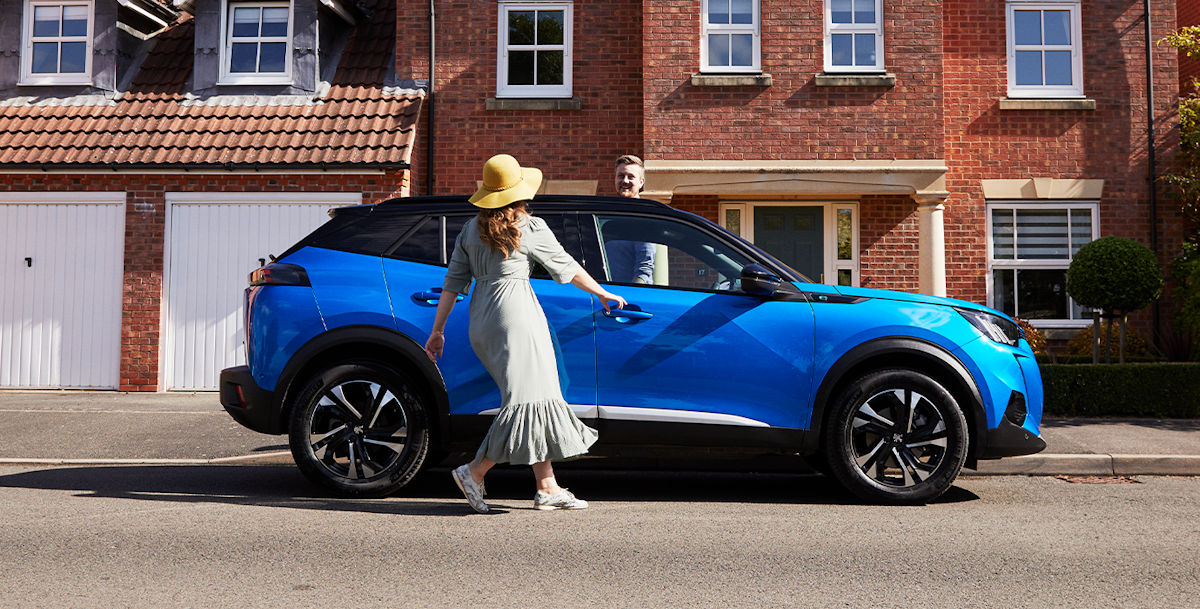
15 interesting facts about electric cars
Did you know the first electric car dates back to the 1800s? Or that there are almost four times as many charging points as petrol stations in the UK? Read on for more weird and wonderful facts about EVs.
Electric cars on the rise
The motor industry has faced a number of challenges in recent years – from global supply issues to semiconductor chip shortages and long wait times for vehicles. But amid the negative headlines, the popularity of electric vehicles (EVs) is providing a beacon of hope.
Despite the challenges, the undeniable bright spot is the growth in electric car uptake. A record-breaking year [in 2021] for the cleanest vehicles is testament to investment made by the industry over the past decade and the attractiveness of the technology.
Here are 15 interesting facts about electric cars to get you up to speed on the motoring revolution that’s taking over UK roads.
History of electric cars
1. The first EV dates back to the 1800s
But naming the inventor of the first model isn’t straightforward. The first electric motor is quite often credited to Hungarian engineer Anyos Jedlik in 1828, who fitted it to a small model car. A Scottish inventor Robert Anderson followed in 1832 with the first full-sized electric carriage, then in 1884, Thomas Parker built the first electric car in London. Ferdinand Porsche launched the Porsche brand with an electric car in 1898, the P1, which reached a top speed of 25km/h.
2. A third of vehicles on US roads in the early 1900s were powered by electricity
By 1889, William Morrison introduced a very simple electric wagon to the US, which was a roaring success. Between 1900 and 1912, one third of all vehicles on US roads were powered by electricity. Thomas Edison (the inventor of the lightbulb) reportedly said electric cars were a “superior mode of transportation” and spent a great deal of time trying to build electric batteries.
3. General Motors’ EV1 cost a billion dollars to develop
The EV1 was produced by General Motors (GM) from 1996 to 1999 and its development cost a reported $1 billion. It was the first mass-produced and purpose-designed electric vehicle, but was considered a dud by GM, which crushed all but a handful of the 1,000 vehicles it produced. The EV1 could travel around 50 miles on a charge. Former Top Gear presenter and used car dealer Quentin Willson remembers driving it in 1996 and says: “I remember thinking this is the future”. He now drives a Tesla Model 3.
4. The sound electric cars make is added for safety
As of July 2019, a new rule in Europe meant that all new electric and hybrid cars must emit an artificial sound so they can be heard by cyclists and pedestrians at low speed. It kicks in at around 13mph and below.

Buy an electric car
5. More than one in four UK households intend to get an electric car in the next five years
According to the energy watchdog Ofgem, one in four households plan to switch to electric cars in the next five years. The government wants one in three cars on the UK’s roads to be electric by 2030 (it’s currently around one in 100).
6. There were more electric cars registered in March 2022 than the entire year of 2019
And those numbers are going up fast. More than 77,000 new electric cars have already been sold in 2022 in the UK, an increase of 88%, year on year. There were more electric vehicles registered in March 2022 than the whole of 2019. The UK has one of the highest numbers of electric cars per capita, after Germany and Norway.
7. The choice of models is greater than ever before
More than 40% of car models are already available as plug-ins, plus many of the world’s leading manufacturers have made commitments to invest heavily in this technology. Jaguar plans to sell only electric cars from 2025, Volvo from 2030 and the British sportscar company Lotus will do the same from 2028. General Motors says it will make only electric vehicles by 2035, Ford says all vehicles sold in Europe will be electric by 2030 and VW says 70% of its sales will be electric by 2030.
8. Over the next two decades, virtually every new car sold around the world will be electric
Forecasting by the investment bank UBS predicts that one in five new cars will be electric by 2025, leaping to 40% by 2030. By 2040, experts believe virtually every new car sold around the world will be an electric vehicle, driven by their cost competitiveness against fossil fuel vehicles.
Electric car running costs
9. The Tesla Model 3 is the UK’s best-selling electric car
In 2021, 34,783 Tesla Model 3s were sold in the UK making it the country’s favourite electric car, although it’s expected to be superseded by the Tesla Model Y this year. Drivers like its speed (0-60 in 3.1 seconds), long range and fancy tech, plus its supercharger network can recharge 80% of the battery in just 30 minutes.
It’s seen by many as revolutionary because of its impact on other carmakers, forcing them to accelerate their own EV development and production.
10. Only one in 10 EV drivers buy their vehicles outright
According to the official statistics, 90% of new EV cars are financed. A poll of 2,000 UK drivers shows 47% say they simply cannot afford to buy an electric car.
For some, an electric car subscription service is the solution to accessing an electric car. Research by What Car? found more than 45% of people are interested in owning an electric vehicle (EV) via a subscription, because it would give them an opportunity to try out the technology and stay up to date with new advancements, without committing to a big price tag up front.
11. It’s much cheaper to run an electric car
In 2022 the average cost of running an 100% electric car is 9p per mile, according to the UK government. This figure stacks up attractively against petrol cars, which cost 24p per mile – more than twice the amount of electric models.
A car will generally clock up around 150,000 miles across its lifetime, which means that even though electric models can be more expensive initially, they can save you several bucket loads over the years.
If you buy an average electric vehicle, you’ll spend £6,000 on charging it. In contrast, a petrol car will cost £17,700 to go the same distance over its lifetime, which is £11,700 extra.
Servicing and maintenance checks should also be cheaper. Electric cars only have around 20 moving parts, so minimal checks are needed.
Plus, with Onto, maintenance is included within the monthly subscription fee, so you won’t need to keep extra funds allocated in your vehicle budget.
Best electric car range
12. The top five electric cars can drive from London to Leeds on a single charge
A typical electric car will travel 100-200 miles on a single charge (enough to take you from London to Leeds), while the Tesla Model 3 can cover up to 300 miles before needing to be recharged. A typical electric car will take eight hours to charge from empty at a fast 7kW charge point. Rapid 150kW chargers can add 200 miles in around 35 minutes.
Charging your electric car
13. There are almost four times more electric car charging points than petrol stations in the UK
The numbers are growing all the time, but as of April 2022 there were 31,507 electric vehicle charging devices in the UK, providing more than 52,800 connectors. In comparison, there are only 8,380 petrol stations across the country, according to the UK Petroleum Industry Association. The government says it aims to reach 400,000 public charging points by 2030.
Onto subscribers get free access to over 14,000 public chargers as part of their subscription, nearly one in three of all the chargers in the UK.
A more sustainable future
14. EVs help you do your part for the environment
The average person in the UK drives 6,800 miles per year, which makes up 40% of their overall carbon footprint. If everyone switched to electric, it would save the 89.6 million tonnes of CO2 that are released into the atmosphere every year.
The next generation of drivers is particularly keen on EVs – a YouGov poll of nearly 500 prospective or current learner drivers across the UK found 42% would prefer their first cars to be fully electric (26%) or hybrid (16%) after they pass their test.
15. In 2021, the Onto community drove more than 17 million pure electric miles
We’re pretty proud of our job introducing a new group of drivers to electric vehicles. Nine out of 10 people joining Onto are driving an electric car for the first time.
In 2021, our community drove more than 17 million pure electric miles, saved more than 1.9 million litres of fossil fuels, and prevented 3,985 tonnes of CO2 tailpipe emissions from entering the atmosphere. Plus, we added 6,000 new electric cars to our fleet.
Related articles
- Cured! Why range anxiety is no longer a concern for electric car drivers: The term ‘range anxiety’ was coined in 1997. Things have changed since then. A lot.
- Tesla Model 3: key features and updates: If you’re thinking of switching to an electric vehicle with environmental benefits, a good range and the latest technological features, chances are you have considered a Tesla.
- Introducing the Hyundai Kona Electric Premium SE 64 kWh: The best affordable long-range SUV: In terms of range offered for the money, it's nothing less than an exceptional, ground-breaking car.
This is the future of driving
Discover our round-up of the latest electric cars in 2023, including the best offers, charging, performance and range.
For an all-in monthly fee, enjoy all the benefits of car ownership, but none of the hassle.